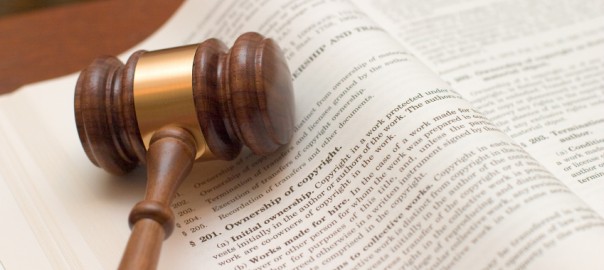Chapter XXXIII of the Intellectual Property Law No. 36 of 2003 makes provision for the protection of geographical indications.
Geographical Indications (GI) are off shoots of indications of source and appellations of origin which were first accorded recognition in the Paris Convention. Indications of source is a broad concept and designates a country or place situated in that country from where the particular product in question originates. Accordingly expression such as made in Sri Lanka would fall into this category.
Appellations of origin is a geographical names of a country or place in that country. The product just necessarily have its characteristics and quality linked with the geography of the place by way of for instance agro climatic conditions and human factors.
Geographical indications are indications identifying a particular good as originating in a country or locality in that country. The quality of characteristics or reputation of such goods must be essentially attributable to the geographic origin. Definitions would include not only geographical names but also any non-traditional names which have acquired significance. Ceylon Tea would fall into this category.
There are has been no uniform approach by various countries in respect of protection of geographical indications. Some countries have enacted specific “sui generics” to protect GI’s. Other protect GI’s under existing laws and still others afford protection by a combination of both. For protection of GI’s Unfair Competition, Consumer Protection Laws protecting tradenames and marks and passing off and laws relating to false and misleading trade practices would also be relevant.
As far as international treaties and agreements are concerned the protection of GI’s are concerned they began with the Paris Convention for the protection of industrial property in 1883 where protection was afforded to appellations of origin. In the recent past the TRIPS Agreement the WTO afforded protection of GI’s by promoting a standard definition of GI’s and prescribing certain minimum standards by which they should be legally protected by all WTO member States. Some of the more important international agreements relating to GI’s are –
- Convention for the protection of Industrial property 1883
- Madrid Agreement for the repression of false or deceptive indications of source on goods 1891
- General Agreement on tariffs and trade (GATT) 1947
- Lisbon Agreement for the protection of appellations of origin and their international registration 1958
- Agreement on trade related aspects of intellectual property right 1995.
Section 161 provides as follows –
“(1) Any interested party shall be entitled to prevent –
- the use of any means in the designation or presentation of goods that indicates or suggests that the goods including an agricultural product, food, wine or spirit in question originates in a geographical area other than the true place of origin in a manner which misleads the public as to the geographical origin of goods; or
- any use of a geographical indication which constitute an act of unfair competition within the meaning of section 160;
- the use of a geographical indication identifying goods including an agricultural product, food, wine or spirit not originating in the place indicated by the geographical indication in question or identifying goods not originating in the place indicated by the geographical indication in question, even where the true origin of the goods is indicated or the geographical indication is used in translation or accompanied by expression such as kind, type, style or imitation or the like.
(2) The protection accorded to geographical indications under sections 103, 160 and 161 shall be applicable against a geographical indication which, although literally true as to the territory, region or locality in which the goods originate, falsely represents to the public that the goods originate in another territory.
(3) In the case of homonymous geographical indications for goods including an agricultural product, food, wine or spirit, protection shall be accorded to each indication, subject to the provisions of subsection (2) of this section. The Minister in case of permitted concurrent use of such indications, shall determine by prescribed practical conditions under which the homonymous indications in question will be differentiated from each other, taking into consideration the need to ensure equitable treatment of the producers concerned and the protection of consumers from false or deceptive indications.
(4) The Court shall have power and jurisdiction to grant an injunction and any other relief deemed appropriate to prevent any such use as is referred to in this section. The provisions of Chapter XXXV of the Act shall mutatis mutandis, apply to such proceedings.
(5) For the purposes of this section “geographical indications” shall have the same meaning as in section 101. “
At present in Sri Lanka whilst there is a provision for the protection of GI’s including injunctive relief, the form of registration of GI’s is generally in the form of certification marks. For instance as far as Ceylon Tea is concerned Sri Lanka Tea Board grants a certification mark subject to the provisions contained in the Intellectual Property Act in respect of certification marks. However there are other produce of Sri Lanka which may not be eligible at present for the grant of certification marks because there is no authority to grant such rights under the provision of Chapter XXIX.
Several exporters have pointed out to the Government that when seeking protection of Sri Lanka produce in foreign countries they find it easier and more convenient if Sri Lankan authorities could certify that the mark is in fact registered in Sri Lanka as a GI. The Spice Council of Sri Lanka representing the exporters of spices and Export Development Board have constantly drawn the attention of the authorities that early measurers must be taken in this regard. Accordingly the authorities have agreed on principle to make interim provisions relating to Ceylon Cinnamon and certain other products taking into account the provisions of Section 204 of the Act which enables the Minister from time to time to make regulations for the purpose of carrying out or giving effect to the principles of the Act and sub-section 2 provides that without prejudice to the generality of the powers conferred by subsection 1 the Minister may make regulations in respect of the matters referred therein –
Subsection 2 refers to 8 such matters . In terms of section 2 (2) the Director General shall be vested with the powers of the implementation of the provisions of this Act control and superintendence of the registration and administration of industry designs, patents, marks and any other matters as provided by the Act and the supervision and control of all persons appointed for or engaged in the implementation of the provisions of this Act. As provisions relating to GI’s are contained in Part IX of the Act the regulations could be made in respect of GI’s as well. Accordingly the Government is expected to make regulations for the better protection of Ceylon Tea and Ceylon Cinnamon. Consideration is also being given as to whether a new Act should be enacted in respect of registration of GI’s. Meanwhile regulations as an interim measure referred to are expected to be enacted early and this would at least to some extent further protect the exporters of Ceylon Tea and Ceylon Cinnamon and other spices.


